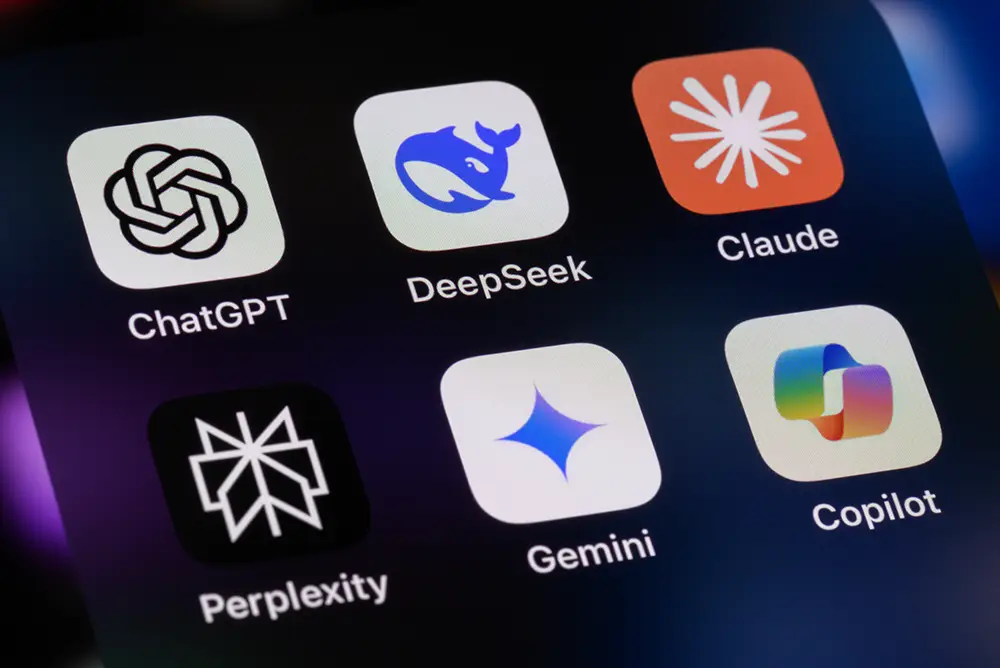ChatGPT is not a substitute for therapy, especially for kids
By Jacque Cutillo, Ph.D., LLP, LPC, LMHC, Director of Specialized Operation, Youth Villages
In an era where technology is at our fingertips 24/7, it’s no surprise that many people are turning to artificial intelligence tools like ChatGPT for advice and emotional support. According to a JPMorgan Chase report, about 800 million people are using ChatGPT. This tool can be particularly appealing for young people because it is fast, free and available any time of day. But when it comes to mental health, these tools are not a replacement for professional therapy. And for kids, they can even pose significant risks.
Where AI can help
According to a recent study from Common Sense Media, 70% of teens are turning to chatbots for both companionship and mental health care. While it cannot replace either, there are some ways AI tools can act as a supplement. For example, a chatbot might walk someone through a breathing exercise or help build a morning routine. It might even help a young person write a resume or stay organized with schoolwork and goals. It can be a tool to be used alongside therapy.
That’s where the benefits end and the risks begin.
AI is not a crisis tool
One of the biggest concerns with using AI for mental health is that it is not equipped to handle a crisis. An AI bot cannot respond in an effective and responsible way if a young person is feeling suicidal, experiencing hallucinations or disclosing abuse. It’s not a mandated reporter. It is not designed to know how to assess danger. Most importantly, it can’t call for help.
The Center for Countering Digital Hate’s research finds that ChatGPT has given advice to teens on how to conceal eating disorders, the best ways to get drunk and high, and even how to write a suicide letter.
Most AI tools—including ChatGPT—clearly state in their terms of service that they are not intended for use by minors or for emergency mental health support. This is especially troubling considering how often children and teens turn to technology when they feel most vulnerable.
Lack of empathy, nuance and safety
Therapy is a deeply human process. It requires trust, empathy, cultural understanding and the ability to read between the lines. A licensed trained therapist can pick up on a youth’s behavioral patterns, body language and shifts in tones. AI cannot.
AI bots may be helpful in figuring out how to implement a skill but uncovering the root causes of anxiety or trauma requires finesse, active listening and empathetic exploration.
AI tools also struggle with nuance. They often misinterpret slang or cultural references and their answers can be cut and dry in situations that are anything but. Even when an AI suggestion is not safe or therapeutically accurate, a child might listen to the suggestion.
False relationships and developmental risks
Children and teens are still learning how to build relationships, manage emotions and resolve conflicts. These are critical developmental tasks requiring real human interaction.
Relationships with AI bots are generally stale and predictable. They don’t prepare kids for real-world social interactions.
Relying on AI for emotional support can stunt social growth, create false expectations about how relationships work and even lead to emotional dependency.
What parents need to know
You should know if your child is using AI for emotional support and if they are, you should stay involved. That doesn’t mean spying, but it does mean setting healthy boundaries, asking questions and monitoring use in age-appropriate ways. You can look at their search history and review conversations together. Talk with your child about their chatbots responses and if they seem appropriate and safe.
Be alert to changes in your child’s behavior. Improvements in mood, sleep or social interaction might indicate a helpful tool but withdrawal, sadness or increased anxiety could be red flags.
Most importantly, don’t let a chatbot take the place of a trusted adult or trained professional. If your child is struggling, reach out to a school counselor, therapist or local provider. The best support still comes from real people who care, listen and understand.

